 
|
||||
|
|
JAMES MARIENTHAL |
|||
|
mwe3.com presents a new interview with
James Marienthal: Of course, it’s a challenging time for everyone, everywhere, on one level or another. For me, the isolation, yes, provided time to focus on music and creativity, and finish this album. And I’ve had my challenges too, which also provide inspiration. Even the title Speak to the Sky came to me as I was facing my own emotions that were arising during these times. And yes, live performance opportunities are rare and take extra effort to create safely. I was blessed to be able to have an outdoor CD release concert last week. Over 100 people came to a lovely park in Boulder on a beautiful evening, spread out at safe distance, and enjoyed the concert. Arwen Ek and Tom Wasinger who perform on the CD also performed in the concert and we all had a great time! mwe3: You are considered one of the forerunners of the early New Age music scene. Back in the late 1980s your label Silver Wave was just starting to release a variety of music and said in 2018, that Silver Wave has released close to 100 albums. Are all the albums in the Silver Wave catalog still in print on CD or cassette for that matter or are they mostly on digital music these days? It’s amazing how we’ve come full circle in 33 years. I remember how hard it was to manufacture a CD back in 1986! What decade do you, or did you like more, the 1980s, ‘90s, ‘00s or the ‘10s and now it’s the 2020 era? Wow, we’ve been around a long time!
Our recordings were winning many awards, including Grammy’s, and our artists were getting a lot of recognition. We were also the first to release a series of world music lullabies, and those collections have sold far beyond our dreams, and the songs have been licensed for various uses all over the world. There are still over 70 titles in the Silver Wave catalog, and all of those are alive and well in digital distribution. Most of them are also still available on CD. mwe3: Like your 2018 album with Mysteries of the Night, your 2020 album Speak To The Sky was recorded at The Tank Center for Sonic Arts as well as Subterranean Studio. Can you tell us some background on the recording approach and design of Speak To The Sky? James Marienthal: Speak To The Sky started with a solo session in The Tank. I played several instruments, mostly flutes, bowls, and xylophone, and I overlapped the sounds by using the long delay in The Tank. Then more songs were recorded in the studio in various sessions. At that point I had quite a few tracks, so I needed to take time to listen carefully to all the recordings and decide which songs were the best, and which songs would fit together as a complete album. I believe the album provides a cohesive deep listening experience and has a lot of compelling variety. mwe3: On Speak To The Sky, you also have other artists appearing on the album too, including Arwen Ek on backing vocals and Tom Wasinger on Lap Steel Guitar and 12-string guitar. What did they bring to Speak To The Sky? They’re not on every track, what tracks are they on and can you single out a couple highlights of working with the other artists on the new album?
mwe3: Silver Wave has long been associated with Native American music and Speak To The Sky has a kind of ritual effect where the music connects the listener with nature. Someone said your music is like “jamming with God”. Is Native American music a big component of Speak To The Sky? Even the title sounds like a Native American philosophical expression. What is your connection with Native American music and other artists that play indigenous music, not only American Indian music but other cultures too? James Marienthal: To be clear, I am not Native American, but I play Native American style flute on six of the eight songs, and it is my main instrument. My style has been influenced by Native flute players that I worked with at Silver Wave, like Mary Youngblood and R. Carlos Nakai. I also studied jazz improvisation long before I was introduced to Native flute, so I’ve been influenced by many jazz players too, like John Coltrane and Keith Jarrett. There is definitely a spirituality in this music. You can call it jamming with God, listening to nature, or being in the moment and channeling whatever the universe brings forth. And yes, the title Speak To The Sky refers to having a conversation with the universe, talking, listening, tuning in to the vibration and energy of what is present in the moment, and responding. This is a practice and an art, and it is part of indigenous music, jazz, and many musical forms.
James Marienthal: Piano was my first instrument and it’s what I played when I was first studying jazz improvisation. I never really developed the chops, so to speak, of a seasoned jazz player, but I learned to improvise on piano and I have been doing it all my life. Silence Seen was influenced by a recording I heard during a movement practice I do known as Conscious Dance. I fell into a deep listening experience with my whole body while listening to this slow spacious piano piece. I came home and started improvising on piano with this same energy. I liked what was coming through and developed it into a full original composition. I would call it New Age, and it has a neoclassical element to it as well. mwe3: Do you think New Age instrumental music is bigger now than it was in the 1980s? Do people have more of a need to meditate and de-stress these days more than in the 1980s and ‘90s or is the population just getting older while becoming warmer to the idea of music as therapy these days? James Marienthal: Music is timeless. So is meditation. New Age is still new, as it was 30 years ago, or hundreds of years ago. Mainstream culture is more aware of it now, not only out of need, but a desire to live more fully with deeper experiences. New Age music is one way to explore these experiences, along with meditation, yoga, conscious dance, and many other practices. And it spans all generations. Anyone looking to go deeper has access to these tools and people keep creating more. Music, movement, and mindfulness, are all good medicine.
James Marienthal: It’s not often that I play more than one flute on a song, but yes, I do that on “Speak To The Sky”. That song was created in the studio last year on a day that was particularly emotional for me. I started playing a simple melody that came to me while the recording engineer was setting up for the session. I had planned on recording some other songs that day, but I decided to stay with what was coming through in the moment. I developed it into a full song and created an arrangement for it using three different Native flutes. I started with one made out of rosewood in the key of F minor. Then I moved up a step to a G minor cedar and mahogany flute. I then switched to a dual chamber flute that intensifies the energy, all while leaving space for Tom to add accompaniment with lap steel guitar, which he did masterfully. I still feel the deep emotion of the piece when I listen to it now. mwe3: Can you tell us more about your compositional style? When you record a track, are there some definitive writing styles or are most of the tracks improvisational in nature? James Marienthal: Most of my flute songs begin as improvisations, often when I am out in nature somewhere and feeling inspired by my surroundings. Melodies come through, and when I hear one that I like, I play it again and start to memorize it. Then I add to it and develop it into a more complete song. When I play an original song, I always add something new to it each time. I also play covers of traditional songs and pop songs, making up my own arrangements along the way. I rarely play a song the same way twice. Everything is a variation on a theme. mwe3: What have you learned in 2020? They said it’s a year to write-off and forget but I think we’ve all undergone a kind of change as human beings. How will you implement what you’ve learned in 2020 and how will that affect your upcoming music and other plans as we’re looking at 2021 already?
|
|
|||
|
||||

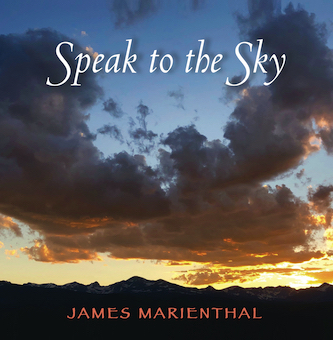 Following the 2018 CD release of Alive Inside The Tank, New Age maestro James Marienthal is back on top in 2020 with his latest solo adventure called Speak To The Sky, with James supported by Arwen Ek (vocals) and Tom Wasinger (Lap Steel and 12-string guitar). The master-builder of the legendary Silver Wave Records label, around since the 1980’s, James excels on Speak To The Sky, an album that serves as a fine showcase for James performing his Native American flutes, bamboo flute, free-note xylophone, piano and rattles. As James writes in his Speak To The Sky liner notes, his goal is to immerse the listener in an aura of peacefulness and deep, natural relaxation. More than just a New Age meets World Music instrumental music experience, Speak To The Sky is a journey inward that serves as a kind of musical therapy that eviscerates the harshness of an era steeped in fear and division. By uniting the listener with the magic of his mystical, flute-based instrumental music, James invites you to slow down the madness and join him through the glory of nature. The album is somewhat different from Alive Inside The Tank, as it also features a stunning piano piece, performed by James called “Silence Seen”, a track that serves to introduce another side of James and that is well worth listening to. Silver Wave Records have been releasing outstanding instrumental New Age music for decades and the 2020 CD release of Speak To The Sky is among the label’s great sonic achievements. New Age fans don’t miss this latest magical mystery trip by Native American flute maestro James Marienthal.
Following the 2018 CD release of Alive Inside The Tank, New Age maestro James Marienthal is back on top in 2020 with his latest solo adventure called Speak To The Sky, with James supported by Arwen Ek (vocals) and Tom Wasinger (Lap Steel and 12-string guitar). The master-builder of the legendary Silver Wave Records label, around since the 1980’s, James excels on Speak To The Sky, an album that serves as a fine showcase for James performing his Native American flutes, bamboo flute, free-note xylophone, piano and rattles. As James writes in his Speak To The Sky liner notes, his goal is to immerse the listener in an aura of peacefulness and deep, natural relaxation. More than just a New Age meets World Music instrumental music experience, Speak To The Sky is a journey inward that serves as a kind of musical therapy that eviscerates the harshness of an era steeped in fear and division. By uniting the listener with the magic of his mystical, flute-based instrumental music, James invites you to slow down the madness and join him through the glory of nature. The album is somewhat different from Alive Inside The Tank, as it also features a stunning piano piece, performed by James called “Silence Seen”, a track that serves to introduce another side of James and that is well worth listening to. Silver Wave Records have been releasing outstanding instrumental New Age music for decades and the 2020 CD release of Speak To The Sky is among the label’s great sonic achievements. New Age fans don’t miss this latest magical mystery trip by Native American flute maestro James Marienthal. 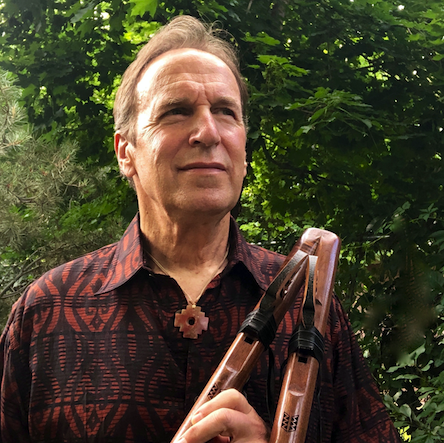 mwe3: How are things in Colorado? Has all this crazy pandemic era been good or bad for your music? Someone said it’s a good time for isolated creativity but not so good for concerts or live performing. Is that how you see it? Seems like a stressful, life-changing time to be alive.
mwe3: How are things in Colorado? Has all this crazy pandemic era been good or bad for your music? Someone said it’s a good time for isolated creativity but not so good for concerts or live performing. Is that how you see it? Seems like a stressful, life-changing time to be alive. 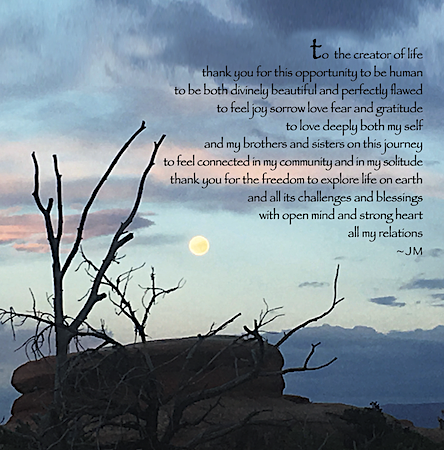 James Marienthal: Yes, it has been a long time! The 1990’s and 00’s were the prime years for Silver Wave, so I’d have to say I liked those the best. CD’s became the primary format, and our catalog of Contemporary Native American music became very popular and was selling very well in the U.S. and internationally.
James Marienthal: Yes, it has been a long time! The 1990’s and 00’s were the prime years for Silver Wave, so I’d have to say I liked those the best. CD’s became the primary format, and our catalog of Contemporary Native American music became very popular and was selling very well in the U.S. and internationally. 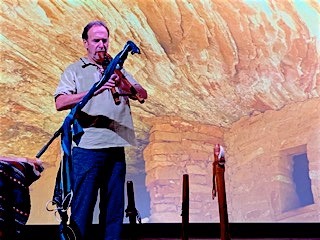 James Marienthal: Both Tom and Arwen bring a lot of creativity and support to the album. Arwen is on three songs and she did a wonderful job of adding vocal sounds and textures to my flute songs. We recorded simultaneously in the studio and played off each other, as opposed to overdubbing which is the more common approach. Tom is a master musician and compliments two other songs beautifully. They both play on the song Returning Home and it’s wonderful the way it sounds with all three of us coming together. Arwen adds an element of mystery to “Wondering Who”, and Tom is just amazing playing lap steel on the title song.
James Marienthal: Both Tom and Arwen bring a lot of creativity and support to the album. Arwen is on three songs and she did a wonderful job of adding vocal sounds and textures to my flute songs. We recorded simultaneously in the studio and played off each other, as opposed to overdubbing which is the more common approach. Tom is a master musician and compliments two other songs beautifully. They both play on the song Returning Home and it’s wonderful the way it sounds with all three of us coming together. Arwen adds an element of mystery to “Wondering Who”, and Tom is just amazing playing lap steel on the title song. 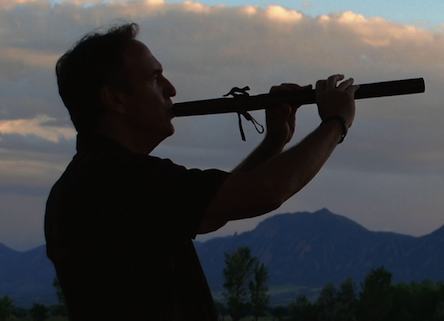 mwe3: Most of the tracks on Speak To The Sky are very much based on your Flute-based sound but track seven is very different as it’s a piano-based solo track. What can you tell us about that track “Silence Seen”? Does that hark back to another side of your music and would you call “Silence Seen” neoclassical or New Age?
mwe3: Most of the tracks on Speak To The Sky are very much based on your Flute-based sound but track seven is very different as it’s a piano-based solo track. What can you tell us about that track “Silence Seen”? Does that hark back to another side of your music and would you call “Silence Seen” neoclassical or New Age? 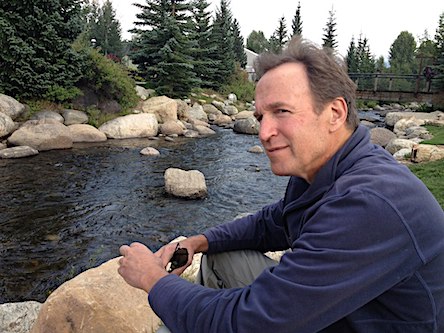 mwe3: On the title track “Speak To The Sky”more than one flute is played? Do you sometimes mix different flutes on the same track?
mwe3: On the title track “Speak To The Sky”more than one flute is played? Do you sometimes mix different flutes on the same track? 